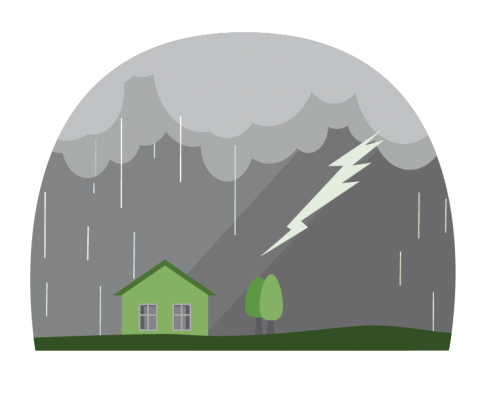Prepare for Thunder & Lightning
Stay Safe During
Stay Safe After
Related Content

If you are a disaster survivor, please visit FEMA.gov for up-to-date information on current disaster declarations. If you have questions about your disaster assistance application, visit disasterassistance.gov, use the FEMA mobile app or call (800) 621-3362.
Thunderstorms are common and can be dangerous. They can bring intense wind, flash flooding, hail and dangerous lightning.
Prepare for Thunderstorms & Lightning
Know Your Risk
Know your area’s risk for thunderstorms. In most places they can occur year-round and at any hour. Sign up for your community’s warning system. The Emergency Alert System (EAS) and National Oceanic and Atmospheric Administration (NOAA) Weather Radio also provide emergency alerts.
Strengthen Your Home
Cut down or trim trees that may be in danger of falling on your home. Consider buying surge protectors, lightning rods or a lightning protection system to protect your home, appliances and electronic devices.
Make an Emergency Plan
Create an emergency plan so that you and your family know what to do, where to go and what you will need to protect yourselves from the effects of a thunderstorm. Identify sturdy buildings close to where you live, work, study and play.
Stay Safe During Thunderstorms & Lightning
If you are under a thunderstorm warning:

- When thunder roars, go indoors! Move from outdoors into a building or car with a roof.
- Pay attention to alerts and warnings.
- Avoid using electronic devices connected to an electrical outlet.
- Avoid running water.
- Turn Around. Don’t Drown! Do not drive through flooded roadways. Just six inches of fast-moving water can knock you down, and one foot of moving water can sweep your vehicle away.
Stay Safe After Thunderstorms & Lightning
- Pay attention to authorities and weather forecasts for information on whether it is safe to go outside and instructions regarding potential flash flooding.
- Watch for fallen power lines and trees. Report them immediately.


